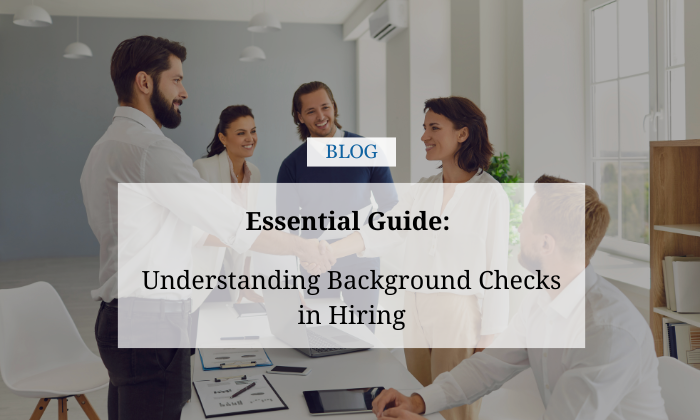In the hiring process, background checks play a pivotal role. They provide crucial insights into a candidate’s past, helping employers make informed decisions.
However, the process of conducting background checks for employment can be complex. It involves legal considerations, various types of checks, and potential implications for the candidate experience.
This guide aims to demystify the process of background checks in hiring. It will delve into what these checks entail, their importance, and how to conduct them effectively.
Whether you’re an employer, HR professional, or recruiter, this guide will equip you with the knowledge to navigate background checks confidently.
What Are Background Checks in Hiring?
Background checks in hiring are investigations into a candidate’s past. They are conducted to verify the information provided by the candidate and uncover any potential issues.
These checks can include various aspects. They may cover criminal records, credit history, employment history, and educational credentials.
The goal is to ensure the safety and integrity of the workplace. Background checks help employers mitigate risks associated with negligent hiring.
In essence, they are a crucial tool for making informed, fair, and legally compliant hiring decisions.
Types of Background Checks for Employment
There are several types of background checks employers can conduct. Each type provides different insights into a candidate’s past.
- Criminal Background Checks reveal any criminal history of the candidate. They are crucial for roles where safety and security are paramount.
- Credit Checks are often used for positions involving financial responsibilities. They provide insights into a candidate’s financial reliability.
- Employment Verification Checks confirm the candidate’s previous employment history. They verify the accuracy of the information provided by the candidate.
- Education Verification Checks confirm the candidate’s educational credentials. They are essential for roles requiring specific degrees or certifications.
These checks, among others, form a comprehensive background check for employment. They help employers make informed hiring decisions.
The Legal Landscape: FCRA and Other Considerations
When conducting background checks, employers must comply with the Fair Credit Reporting Act (FCRA). This law protects candidates’ privacy and ensures fairness.
Employers must obtain written consent from candidates before conducting a background check. They must also provide a copy of the report if the candidate requests it.
In case of adverse action based on the report, employers must inform the candidate. This allows the candidate to dispute any inaccuracies.
Understanding and adhering to these legal requirements is crucial in the hiring background check process.
Why Background Checks Are Crucial for Employers
Background checks are vital for maintaining a safe and productive workplace. They help employers verify the information provided by candidates.
These checks can uncover potential issues that might affect job performance. They also reduce the risk of negligent hiring lawsuits.
In essence, background checks are a critical tool for making informed hiring decisions.
Conducting a Background Check: The Process
The process of conducting a background check begins with obtaining the candidate’s consent. This is a legal requirement and ensures transparency.
Next, employers can use employment screening services to gather the necessary information. These services provide comprehensive reports based on the type of check requested.
Finally, employers must review the results carefully. Any negative findings should be handled with sensitivity and fairness.
Common Questions: Warrants and Restraining Orders
One common question is whether warrants show up on background checks. The answer is yes, active warrants are typically included in criminal background checks.
Another question is about restraining orders. These also appear in background checks, especially if they are related to domestic violence or harassment.
It’s important to understand these aspects when reviewing a candidate’s background check report.
Ensuring Fairness and Compliance in Background Screening
Fairness in background screening is crucial. It’s important to treat all candidates equally and not discriminate based on the findings.
Compliance with laws like the Fair Credit Reporting Act (FCRA) is also essential. This law protects candidates and ensures their rights during the background check process.
Remember, a consistent and fair background check policy can help avoid legal issues and ensure a positive candidate experience.
Securecheck 360
Here at Securecheck360, we’re experts in delivering reliable, fast turnaround and affordable Employment Background Screening Services, serving businesses of all sizes across the globe. Our customized solutions are finely tuned to meet the unique requirements of small, mid-sized, and large organizations. We’re dedicated to equipping companies with the vital tools and insights they need to make well-informed hiring choices. As one of the leading background verification companies, we’re committed to supporting even small businesses as trusted background check companies for small businesses to ensure they have the confidence to build the best teams for their success.
To know more about our services, book your free demo today!
Conclusion: Best Practices for Background Checks in Hiring
In conclusion, background checks are a vital part of the hiring process. They help employers make informed decisions and maintain a safe workplace.
It’s important to stay updated with the latest regulations and best practices. This ensures compliance and fairness in the hiring process.
Lastly, partnering with a reputable background check provider can streamline the process and ensure accuracy. This is a key step towards effective hiring.





